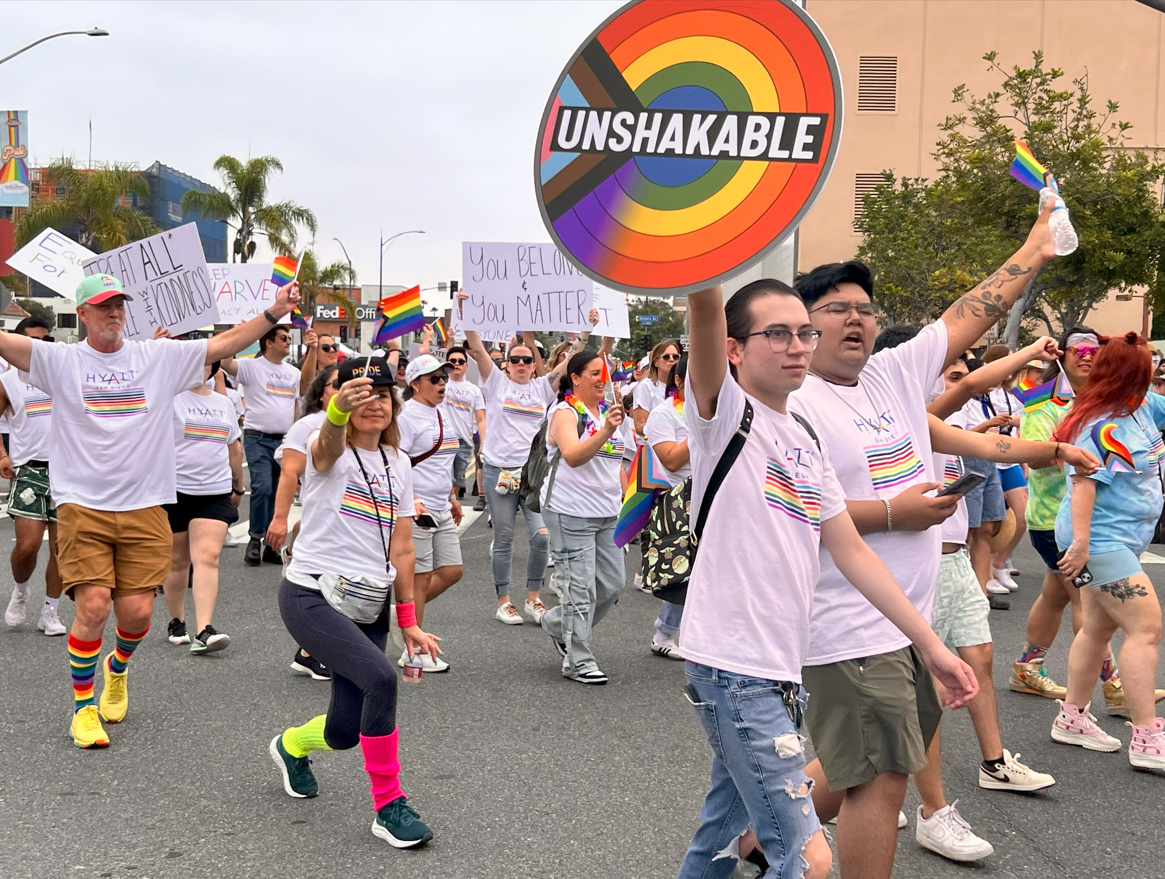San Diego Pride Celebrates Community Amidst National Challenges
San Diego’s LGBTQ+ community recently gathered for its annual Pride celebration, a vibrant display of unity and resilience in the face of increasing anti-LGBTQ+ rhetoric and policies across the nation. The parade, a cornerstone of the city’s Pride festivities, saw thousands of people lining the streets, cheering on colorful floats, music, and displays of solidarity.
Despite the celebratory atmosphere, the event took place against a backdrop of internal divisions and external pressures. Concerns about the leadership and direction of San Diego Pride, the non-profit organization behind the celebration, have been simmering for months. These issues were compounded by controversy surrounding the festival’s headlining performer, Kehlani, leading to a complex and at times fraught experience for participants.
A Parade of Solidarity and Protest
The Pride parade itself was a powerful mix of celebration and protest. While many participants embraced the joyous spirit of the event, dancing and singing along the route, others carried signs addressing the current political climate and the actions of the Trump administration.
Members of SPARTA Pride, a national organization advocating for transgender service members, played a prominent role in the parade, helping to lead the procession after the traditional motorcycle contingent. The presence of such groups underscored the importance of visibility and advocacy within the LGBTQ+ community, particularly in light of recent challenges to transgender rights.
Several local officials, including council member Stephen Whitburn, Mayor Todd Gloria, and assembly member Chris Ward, participated in the parade, though they publicly stated they would not be attending the Pride festival due to concerns about Kehlani’s performance.
Attendees like Adeline Colton, a long-time parade-goer, noted a heightened sense of unity and purpose this year. “It feels more together this year, different from other years,” she said. “Maybe it’s the presidency, but I feel like everyone is really showing up, like everyone in the community. The energy is great.”
Concerns Over Leadership and Direction
Despite the outward display of unity, internal tensions within the San Diego LGBTQ+ community have cast a shadow over the Pride celebrations. Some leaders have voiced concerns that San Diego Pride is not adequately supporting the community in the face of increasing attacks on LGBTQ+ rights and that its year-round programming lacks stability.
One former volunteer highlighted the lack of clarity surrounding the organization’s mission. This sentiment was echoed in a letter from a group of LGBTQ+ leaders calling for reforms in transparency and communication within San Diego Pride.
Controversy Surrounding Headliner Kehlani
The controversy surrounding Kehlani’s scheduled performance at the Pride festival further complicated matters. Dozens of Jewish organizations announced they would not participate in Pride events this year, citing concerns about Kehlani’s remarks on Israel and the safety of Jewish attendees. Several other organizations and local leaders also opted out of the parade in protest.
Kehlani has publicly expressed support for Palestinians in Israel’s war against Hamas in Gaza. These views have led to accusations of promoting antisemitic rhetoric on social media and in their music. Kehlani has denied these accusations, stating that they are “not antisemitic nor anti-Jew” but are “anti-genocide.”
The controversy prompted the organization of an alternative event called J-Pride, held concurrently with the Pride festival.
Financial Challenges and Increased Ticket Sales
San Diego Pride has acknowledged that the Kehlani controversy, coupled with a national shift away from diversity, equity, and inclusion initiatives, has led to a loss of sponsors and funding for its events this year. However, ticket sales to the festival have reportedly increased, which organizers hope will help offset the financial losses.
A Divided Audience at the Festival
Despite the tense atmosphere leading up to the festival, the event itself proceeded relatively calmly. Attendees explored vendor booths, enjoyed music, and connected with friends. However, opinions on Kehlani’s performance remained divided.
Melissa Ferro, a festival attendee, stated that she would not be attending Kehlani’s concert due to the controversy surrounding the singer’s statements on Israel. In contrast, Ryan Cotter, another attendee, planned to see the performance, emphasizing the importance of allowing everyone to have their own opinions.
A Broader Context of Anti-LGBTQ+ Legislation
The challenges faced by San Diego Pride are occurring within a broader context of increasing anti-LGBTQ+ legislation and rhetoric across the United States. The Trump administration has repeatedly targeted LGBTQ+ people and the policies that protect them, including ending funding for a hotline for LGBTQ+ youth and barring transgender people from serving in the military.
Furthermore, the administration has taken steps to erase recognitions of LGBTQ+ history, such as removing the name of gay sailor and rights activist Harvey Milk from a Navy ship and removing mentions of transgender people from the website of Stonewall National Monument.
According to the American Civil Liberties Union, there are currently close to 600 pieces of anti-LGBTQ+ legislation being considered nationwide. While reports of hate crimes overall fell in San Diego last year, those involving bias against sexual orientation made up 40% of all such reports, an increase from the previous year.
Origins of San Diego Pride
San Diego Pride’s roots trace back to 1974, when a group of individuals took to the streets to advocate for gay rights. Over the years, this small march evolved into the Pride Parade, which now attracts approximately 250,000 people annually. The organization has expanded to offer year-round programming, embodying a “Pride 365” ethos.
The events are held to honor the Stonewall uprisings of 1969, a pivotal moment in the LGBTQ+ rights movement when patrons of the Stonewall Inn in New York City fought back against a police raid.

